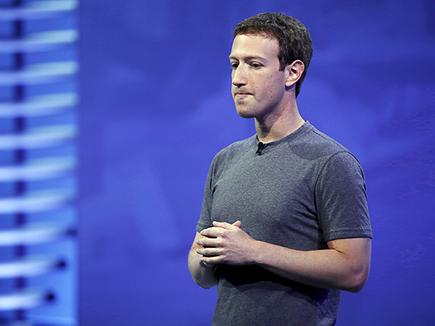
Algorithms are already being used to help determine who’s approved for a loan, who is the best candidate for a job and which criminal is least likely to reoffend. But, how reliable are they… and what ethical considerations should be applied when using data and algorithms to target consumers?
Machine vs human – who is the winner?
In 2015, a study at MIT suggested that an algorithm could predict someone’s behaviour faster and more reliably than humans can. The Data Science Machine, created by a master’s student in computer science, was able to derive predictive models from raw data automatically – without human involvement.
It’s fairly common for machines to analyse data, but humans are typically required to choose which data points are relevant for analysis. In three competitions with human teams, the machine made more accurate predictions than 615 of 906 human teams. And while humans worked on their predictive algorithms for months, the machine took two to 12 hours to produce each of its competition entries.
Fear not, this so-called fourth industrial revolution – where advances in computers, and artificial intelligence bioengineering are converging to change the way our world works – doesn’t spell the end for humans. It does, however, present an enormous opportunity for brands, marketers and communications professionals to more accurately understand consumers. Machines can be incredibly helpful, not to mention accurate, in analysing large amounts of data to inform decision-making with data.

The recent Facebook fallout highlights the scale of the moral dilemma today’s marketers must navigate - how much should we know about our consumers, and what role should ‘chief’ information, marketing and data officers play in ethical practices?
Goodbye market research, hello Facebook
Historically, marketers and communicators have spent hours eavesdropping on research groups and pouring over market analysis in order to predict how humans will think and respond to a brand, product or service. With thanks to the emergence – and now domination – of social media networks, a whole new world of focus groups has materialised.
The way people talk on social media can be very different to how they talk in person. This means that the learnings from traditional focus groups often contrast greatly with what's found from social media monitoring. Imagine, the power of combining these intelligent machines with a market research group of two billion-plus Facebook users. Not only does this present the opportunity for to analyse consumer insights on scale, it also allows for insights to be measured in real-time. In an increasingly digital age where attention spans are short and audiences are fickle, the ability to be nimble with marketing and communications has never been more important.
Listening to what works
Take for example, the work of make-up brand, Maybelline. When it launched its Hyper Sharp Liner in Hong Kong in July 2011, the product quickly became the brand’s No.1 liner. By 2013, the cosmetics market in Hong Kong had become increasingly competitive, with the emergence of new players with comparable products as well as competition from many other international cosmetics brands.
With the emergence of new players with comparable products as well as competition from many other international cosmetics brands, Maybelline decided to relaunch the Hyper Sharp Liner with a one-month integrated campaign that aimed to leverage off the increasing use of social media by the product’s target audience (15- to 25-year-old females).
By gauging the changes in the amount of buzz in social media about the Hyper Sharp Liner before and after the relaunch, Maybelline sought to understand how effective their strategy was. All the while, they mapped this against competitors’ buzz shares, measuring brand awareness and product perception for Maybelline and its competitors across major forums, blogs, social network Services, microblogs, and video and review sites.
This research was used to refine Maybelline’s strategy, and through the one-month communication campaign, Maybelline achieved a projected sell out of units. The a of the Hyper Sharp Liner, and also a significant increase against the average number of unit sold in 2012.
With the use of social media evolving at an increasing pace, this strategy verified social media channels significantly contributed to the transiting consumers from online to offline.

The ethical tightrope
The recent Facebook fallout highlights the scale of the moral dilemma today’s marketers must navigate - how much should we know about our consumers, and what role should ‘chief’ information, marketing and data officers play in ethical practices? While the field of big data is relatively new, the historic definition of ethical marketing should still apply: as a whole, brands should not engage in practices that result in negative or unsatisfying customer experiences.
This is something that is widely accepted and reinforced by peak bodies such as the Australian Marketing Institute. Whether a customer is left with a feeling of discomfort following a unsolicited telemarketing call, a door-to-door salesman or Facebook sharing data with a third party, the responsibility should fall with the company executives giving the directive – generally speaking, within the marketing and communications departments. The Facebook Cambridge Analytica scandal is an important reminder of our obligation to consumers, and that with the power that data affords, comes greater responsibility.
Data or bust
It is now hard to imagine a marketing and communications industry that doesn’t rely on data to inform strategy, new product development and campaigns. Much of what took place in marketing and communications, even as recently as a decade or so back, was based on assumption. We *think* that this product would be of interest to this audience, so we *figured* the best way to tell them about it would be mostly via a TV ad campaign.
But data is now essential for any smart and savvy marketer or communicator, and presents the opportunity to communicate with consumers with a level of insight that has never been more accurate or accessible.
While human behaviour is still not completely predictable, one thing that is for sure: the continued collection and analysis of data will certainly make us more predictable.
While affording brands enormous opportunity, this unprecedented access to consumer data must come with a movement of responsibility that will ensure the predictability of consumers is melded with ethical marketing practices.
Andrea Walsh is CIO at Isentia. She is an experienced technology and digital solutions leader, and has led led large (100-plus) IT and digital teams in delivering high profile, multi-million dollar business outcome solutions across the Asia Pacific region. She is a supporter of FITT (Females in IT and Telecommunications), a not-for-profit network which aims to inspire women to achieve their career aspirations and potential at all levels and disciplines within ICT.
Related reading:
- How aggressive retailers are using algorithms to beat the competition
- We can't rely on anecdotal views to understand the voice of the customer
- Use data for good, not just to ‘sell stuff’
- The ‘fast and furious’ collection of data spawns privacy and economic issues
- ‘Businesses under attack not by competitors, but from customers’

Join the CIO New Zealand group on LinkedIn. The group is open to CIOs, IT Directors, COOs, CTOs and senior IT managers.
